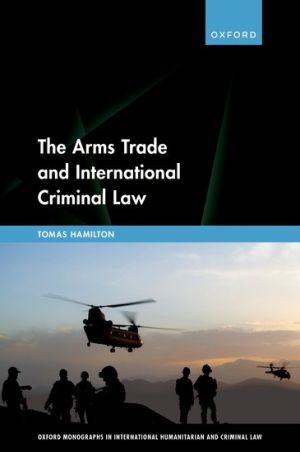
Despite the establishment of UN embargoes, the Arms Trade Treaty (ATT), and the EU Common Position, arms export regulation suffers from significant legal and practical limitations. This book critically evaluates the existing body of 'Arms Trade Law', highlighting its inadequacies in preventing weapons from reaching perpetrators of mass violence.
Drawing on interviews, participant observation, and empirical research to assess the perspectives of judges and lawyers, it also explores the International Criminal Court's narrow focus on prosecuting political and military leaders. Arguing that institutional attitudes and commitments contribute to a legal culture that obscures the potential for an arms trader case, the book illustrates these dynamics through a case study of the UN Security Council's response to the Second Congo War and the ICC's investigations in the DRC Situation, elucidating missed opportunities to enforce accountability against the entire spectrum of actors responsible for international crimes.
Through detailed examination of the arms trade's complexities, The Arms Trade and International Criminal Law foregrounds the structural causes of atrocity and argues for broader accountability. It investigates how individuals-including corporate executives, state officials, and arms traffickers-can be held directly accountable for atrocities under international law, even when their actions are geographically or causally distant from the violence itself. Furthermore, by advancing a specific interpretation of the actus reus and mens rea elements of accomplice liability under Article 25 of the Rome Statute, this book argues for a robust legal basis upon which the ICC can prosecute arms traders. It therefore underscores how international criminal law can complement existing regulations by leveraging its expressive function to condemn all those who profit from atrocity.